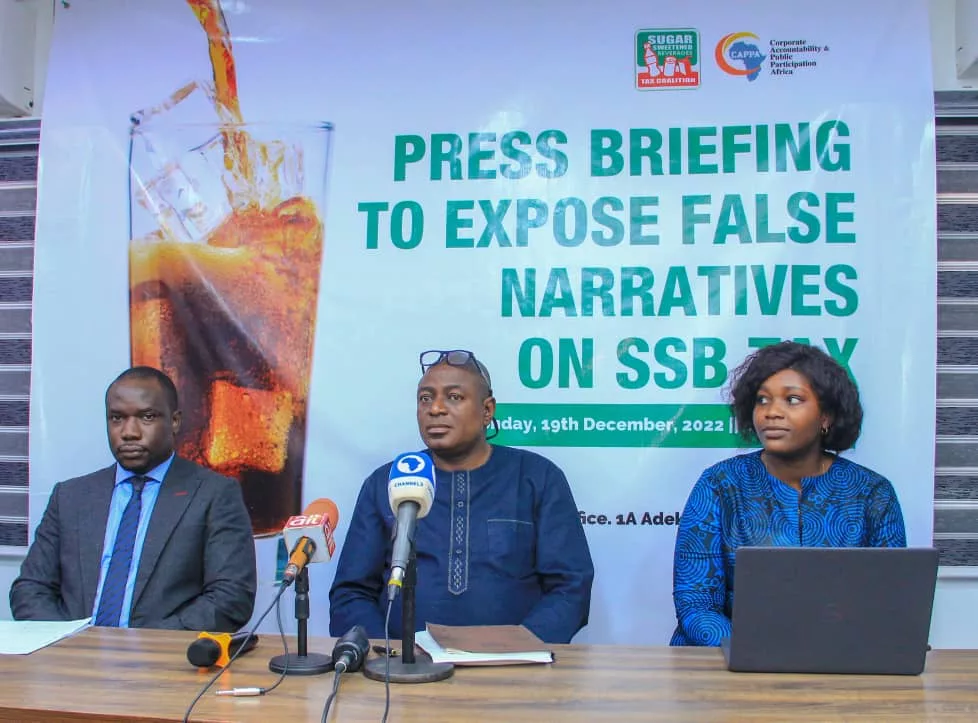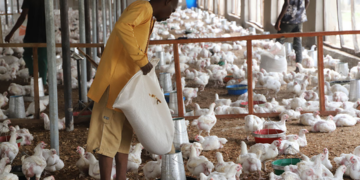Federal government of Nigeria must stand firm on proposed increase of Sugar-Sweetened Beverages (SSB) Tax, as it is key to tackling Non-Communicable Diseases (NCDs) in the country, stakeholders have said.
To them, the increase in NCDs has coincided with the increase in consumption of SSB and unhealthy diets and as such, it is important that steps are taken to address these growing public health challenges; while affirming that one of the ways to reduce the burden includes taxation of free sugars, especially those present in SSB products.
Recall that in 2021, the Nigerian government introduced the SSB Tax by imposing N10/litre excise tax on carbonated drinks and sugar sweetened non-alcoholic beverages produced, imported, distributed, and sold in Nigeria.
A public health professional at the Department of Periodontology and Community Dentistry, University College Hospital, Ibadan Dr Francis Fagbule told me that these drinks are loaded with high calories with no nutritional value.
“Because of the high calories consumed in SSBs, it leads to excessive weight gain. SSBs’ liquid sugar is easily absorbed into the body, those sugars alter the body’s metabolism, affecting insulin, cholesterol, and metabolites that cause high blood pressure and inflammation and is linked to the increasing rate of obesity and diabetes in the country, Fagbule stated.
He disclosed that several studies, have showed a tremendous increase in NCDs. “For example, a national study has showed that less than one million Nigerians was diagnosed of having type 2 diabetes in 1990, but in 2022, we are talking about six million adult Nigerians that are living with the condition.
“We can prevent NCDs like diabetes when we reduce the intake of junk foods and artificial sugar consumption. It is important that steps are taken to address these public health challenges and one of the ways to prevent these burden is through taxation of SSB,” he stated.
He applauded the federal government for enforcing the 30 per cent and valorem plus N84 per pack of tobacco; N40/litre tax on beer; N50/litre on spirits, while advocating an increase of N20/litre on SSB products.
“Though this demonstrates a holistic approach to addressing the common risk factors of NCDs, there is need to increase the tax on SSB from N10/litre to N20/litre, beginning from first quarter of next year, and then subsequently increase it to meet the
recommendations of the WHO, which is 20 per cent tax on SSBs. This will lead to better economic gain for individuals and the country,and the fund should be devoted to strengthening the health system,” he averred.
Meanwhile, the National Sugar Sweetened Beverages Tax Coalition, made up of over 30 NGOs and public health professionals across the country is asking the government not to succumb to cheap blackmail of an industry that places profit above the health of its people.
In a press briefing in Lagos, the executive director, Corporate Accountability and Public Participation Africa (CAPPA), Akinbode Oluwafemi, while speaking on behalf of the Coalition, urged the government to stand firm, in defending the health of the country by enacting the proposed N20/liter into law with immediate application from January 1, 2023.
“Beyond the yearly Finance Act process, the federal government should institute a sustainable legal framework for SSB tax with clear timelines for attaining the WHO recommended 20 per cent of retail price,”
Oluwafemi added.





